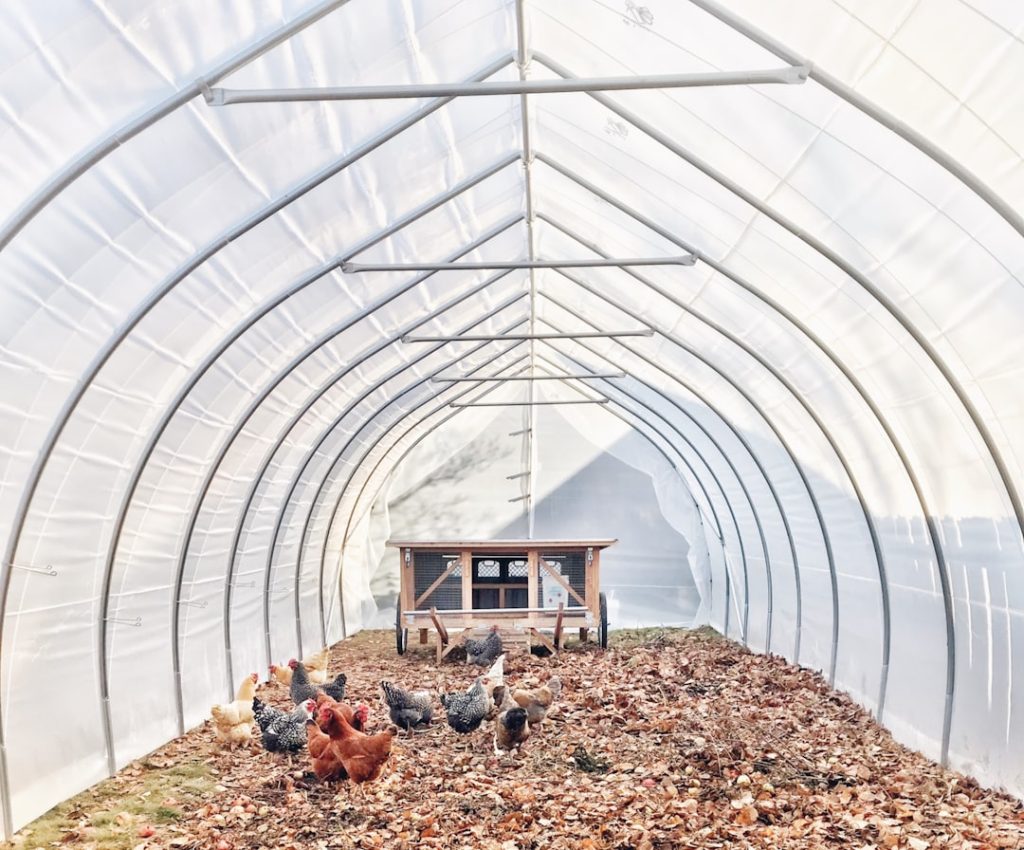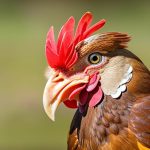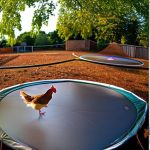Coyotes (Canis latrans) are adaptable and intelligent predators that present a significant risk to domestic chicken populations. These canines exhibit opportunistic hunting behavior and are known to prey on various domesticated animals, including chickens. Coyotes possess the ability to identify and exploit vulnerabilities in chicken coops and enclosures, making them a considerable threat to poultry safety.
Their persistent nature means they may repeatedly target chicken flocks if access is available. Coyotes are primarily nocturnal, which can complicate efforts by chicken owners to monitor and protect their birds during nighttime hours. The presence of coyotes can have severe consequences for chicken populations.
Attacks and the threat of predation can induce stress and fear in chickens, potentially leading to decreased egg production and overall health issues. In more extreme cases, coyote predation can result in the loss of multiple birds, causing significant economic damage to poultry owners. Understanding the threat posed by coyotes is crucial for chicken keepers to implement effective protective measures and safeguard their flocks against these predators.
Table of Contents
- 1 Protecting your flock: strategies for keeping coyotes away from your chickens
- 2 Identifying signs of coyote activity near your property
- 3 What to do if a coyote attacks your chickens
- 4 Working with local authorities to address coyote populations
- 5 The importance of securing your coop and chicken run
- 6 Seeking professional help: hiring a wildlife management expert to deal with coyote issues
- 7 FAQs
Key Takeaways
- Coyotes pose a significant threat to chicken populations, as they are known to prey on chickens and can cause significant losses for poultry owners.
- Implementing strategies such as installing fencing, using guard animals, and securing coop and run areas can help protect your flock from coyote attacks.
- Signs of coyote activity near your property include tracks, scat, and evidence of digging or attempts to access chicken coops.
- If a coyote attacks your chickens, it’s important to act quickly to protect your flock and prevent further losses.
- Working with local authorities and wildlife management experts can help address coyote populations and mitigate the threat to your chickens.
Protecting your flock: strategies for keeping coyotes away from your chickens
Secure Fencing and Enclosures
One effective method is to secure the perimeter of the chicken coop and run with sturdy fencing that is buried at least 12 inches into the ground. This will prevent coyotes from digging under the fence to gain access to the chickens. Additionally, installing a secure roof over the chicken run will prevent coyotes from climbing over the fence to reach the birds. Regular inspections of the fencing for any signs of wear or damage and prompt repairs of any weak spots are also crucial.
Deterrents and Alarms
Another effective strategy for keeping coyotes away from your chickens is to use motion-activated lights and sound devices near the coop and run. These devices can startle and deter coyotes from approaching the area, reducing the risk of an attack on your flock. Keeping guard animals such as dogs or llamas with your chickens can provide an added layer of protection against coyote predation. These animals can help deter coyotes and other predators from approaching the coop and run, keeping your flock safe from harm.
Good Husbandry Practices
In addition to physical barriers and deterrents, it is important for chicken owners to practice good husbandry techniques to minimize the risk of coyote attacks. This includes promptly removing any spilled feed or food scraps from the coop area, as these can attract coyotes and other predators. It is also important to securely lock up the coop at night to prevent coyotes from gaining access to the birds while they are roosting.
By implementing these strategies, chicken owners can effectively protect their flock from coyote predation.
Identifying signs of coyote activity near your property
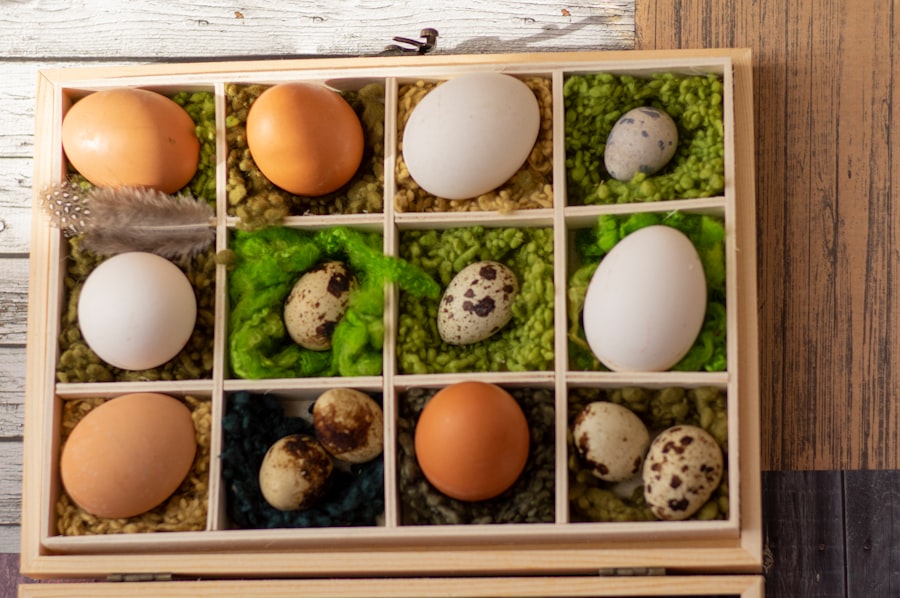
It is important for chicken owners to be able to identify signs of coyote activity near their property in order to take proactive measures to protect their flock. One common sign of coyote activity is tracks in the soil around the perimeter of the coop and run. Coyote tracks are typically oval-shaped with claw marks at the front of the print, and they are larger than those of a domestic dog.
Additionally, chicken owners may notice scat or droppings near the coop that indicate the presence of coyotes in the area. Another sign of coyote activity near your property is vocalizations such as howling or yipping at night. Coyotes are known for their distinctive vocalizations, which they use to communicate with other members of their pack.
Hearing these sounds near your property may indicate that there are coyotes in the vicinity, posing a potential threat to your chickens. Additionally, chicken owners may notice evidence of predation such as feathers or bird carcasses near the coop, which could indicate that coyotes have been targeting their flock. In addition to physical signs of coyote activity, chicken owners should also be aware of any changes in their chickens’ behavior that could indicate the presence of predators.
This includes increased agitation or fearfulness among the birds, as well as a decrease in egg production or overall health. By being able to identify signs of coyote activity near their property, chicken owners can take proactive measures to protect their flock from these predators.
What to do if a coyote attacks your chickens
If a coyote attacks your chickens, it is important to take immediate action to protect your flock and prevent further predation. The first step is to safely remove any injured or dead birds from the coop area and assess the extent of the damage. It is important to carefully inspect the perimeter of the coop and run for any signs of entry or damage that may have allowed the coyote to gain access to the birds.
Additionally, it is important to check on the remaining chickens to ensure that they are unharmed and secure. After addressing the immediate aftermath of a coyote attack, it is important for chicken owners to take steps to prevent future predation. This includes reinforcing any weak spots in the fencing or coop that may have allowed the coyote to gain access to the birds.
Additionally, it may be necessary to implement additional deterrents such as motion-activated lights or sound devices near the coop and run to discourage further attacks. It is also important to monitor the area for signs of continued coyote activity and take proactive measures to protect your flock from further predation. In severe cases where a coyote continues to target your chickens despite efforts to deter them, it may be necessary to seek assistance from local authorities or wildlife management experts.
These professionals can provide guidance on how to effectively deal with coyote predation and may be able to assist in removing problem animals from the area. By taking swift and decisive action in response to a coyote attack, chicken owners can protect their flock from further harm and minimize the risk of future predation.
In some cases, dealing with coyote predation may require working with local authorities or wildlife management experts to address coyote populations in the area. This may be necessary if there is evidence of a large or persistent coyote presence near your property that poses a significant threat to your flock. Local authorities such as animal control agencies or wildlife conservation departments may be able to provide guidance on how to effectively deal with coyote predation and may have resources available to assist in addressing problem animals.
One potential option for addressing coyote populations is through targeted trapping and removal efforts conducted by wildlife management experts. These professionals can safely and humanely trap problem animals and relocate them away from residential areas, reducing the risk of predation on domesticated animals such as chickens. Additionally, local authorities may be able to provide guidance on how to effectively deter coyotes from approaching residential properties through non-lethal methods such as habitat modification or hazing techniques.
It is important for chicken owners to work closely with local authorities and wildlife management experts when addressing coyote populations in their area in order to ensure that efforts are conducted safely and effectively. By collaborating with these professionals, chicken owners can take proactive measures to protect their flock from coyote predation and minimize the risk of future attacks on their chickens.
The importance of securing your coop and chicken run
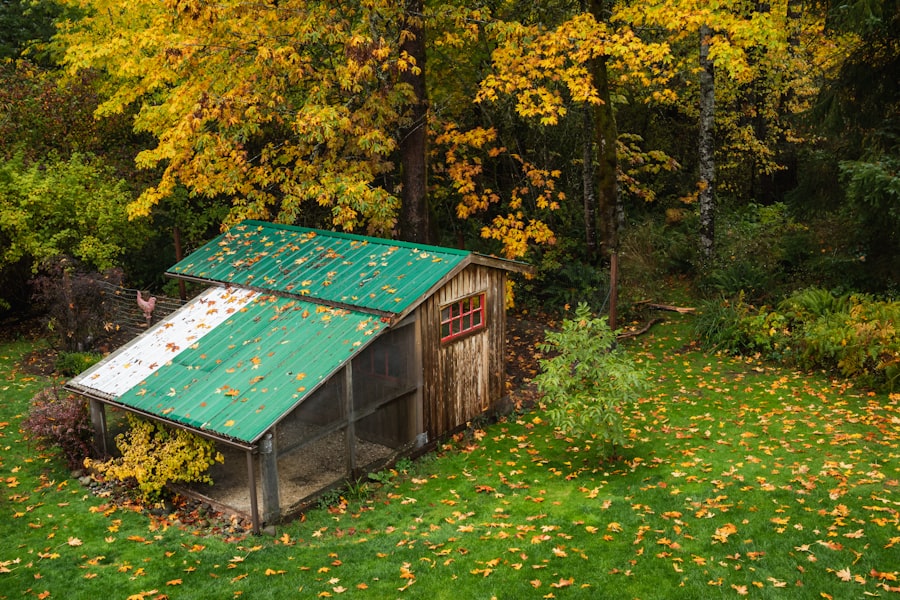
Securing the Perimeter
Securing your coop and chicken run is essential for protecting your flock from predators such as coyotes. One effective method for securing the coop is by using sturdy fencing that is buried at least 12 inches into the ground around the perimeter of the run. This will prevent predators from digging under the fence to gain access to the birds.
Additional Security Measures
Additionally, installing a secure roof over the chicken run will prevent predators such as coyotes from climbing over the fence to reach the birds. It is also important for chicken owners to regularly inspect the fencing for any signs of wear or damage and promptly repair any weak spots that could allow predators to gain access to the coop and run. Furthermore, it is crucial to securely lock up the coop at night to prevent predators such as coyotes from gaining access to the birds while they are roosting.
Good Husbandry Techniques
By taking these proactive measures, chicken owners can effectively secure their coop and run and protect their flock from predation. In addition to physical barriers, it is important for chicken owners to practice good husbandry techniques such as promptly removing any spilled feed or food scraps from the coop area, as these can attract predators such as coyotes. It is also important to keep guard animals such as dogs or llamas with your chickens as an added layer of protection against predators.
Effective Protection
By securing your coop and run and practicing good husbandry techniques, you can effectively protect your flock from predators such as coyotes.
Seeking professional help: hiring a wildlife management expert to deal with coyote issues
In some cases, dealing with coyote predation may require seeking professional help from a wildlife management expert who has experience in dealing with predator issues. These professionals have specialized knowledge and resources that can be invaluable in effectively addressing coyote populations near residential properties. Wildlife management experts can provide guidance on how to secure your coop and run against predators such as coyotes and may be able to assist in implementing deterrents such as motion-activated lights or sound devices near the coop.
Additionally, wildlife management experts may be able to conduct targeted trapping and removal efforts to address problem animals that pose a threat to residential areas. These professionals can safely and humanely trap problem animals and relocate them away from residential properties, reducing the risk of predation on domesticated animals such as chickens. By working with a wildlife management expert, chicken owners can take proactive measures to protect their flock from coyote predation and minimize the risk of future attacks on their chickens.
It is important for chicken owners to seek professional help from a wildlife management expert when dealing with coyote issues in order to ensure that efforts are conducted safely and effectively. By collaborating with these professionals, chicken owners can take proactive measures to protect their flock from predation and minimize the risk of future attacks on their chickens.
If you’re struggling with coyotes killing your chickens, you may want to consider investing in a secure chicken coop. The Producers Pride Sentinel Chicken Coop, featured in this article, is designed to keep your chickens safe from predators like coyotes. With its sturdy construction and secure latches, this coop could be the solution to your predator problem.
FAQs
What are coyotes?
Coyotes are a species of wild canine native to North America. They are highly adaptable and can be found in a variety of habitats, including rural, suburban, and urban areas.
Why do coyotes kill chickens?
Coyotes are opportunistic predators and will prey on small animals, including chickens, when the opportunity arises. Chickens are easy targets for coyotes due to their size and relative lack of defenses.
How can I protect my chickens from coyotes?
There are several measures you can take to protect your chickens from coyotes, including securing their coop and run with sturdy fencing, using motion-activated lights or sound devices to deter coyotes, and keeping your chickens confined to their coop at night when coyotes are most active.
Are there any deterrents that can be used to keep coyotes away from my property?
In addition to securing your chicken coop, there are several deterrents that can be used to keep coyotes away from your property, including scent deterrents, such as predator urine or ammonia-soaked rags, and visual deterrents, such as scarecrows or reflective tape.
What should I do if a coyote continues to kill my chickens?
If a coyote continues to kill your chickens despite your efforts to deter them, you may need to contact local wildlife authorities or a professional trapper to address the issue. It is important to follow local laws and regulations regarding the removal of coyotes.
Meet Walter, the feathered-friend fanatic of Florida! Nestled in the sunshine state, Walter struts through life with his feathered companions, clucking his way to happiness. With a coop that’s fancier than a five-star hotel, he’s the Don Juan of the chicken world. When he’s not teaching his hens to do the cha-cha, you’ll find him in a heated debate with his prized rooster, Sir Clucks-a-Lot. Walter’s poultry passion is no yolk; he’s the sunny-side-up guy you never knew you needed in your flock of friends!

